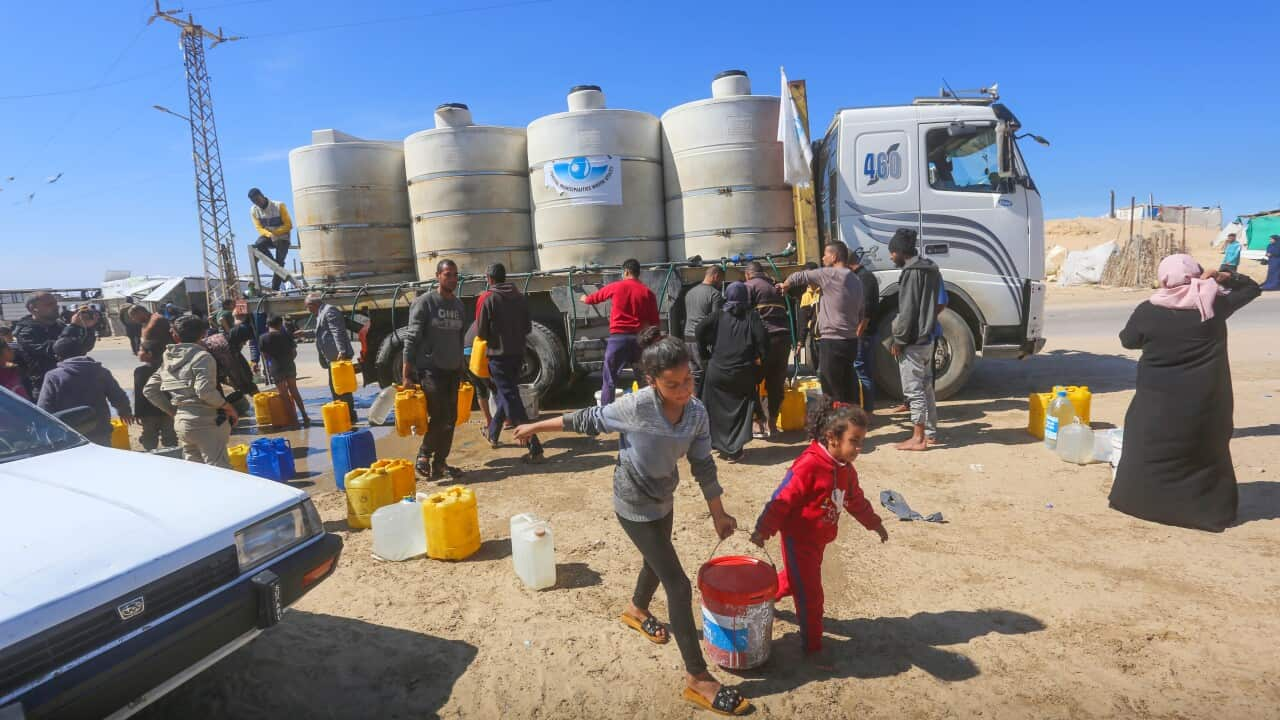Key Points
- Israel has blocked the entry of humanitarian aid into Gaza after the first phase of the ceasefire deal ended.
- Israel said it backs a US proposal for a truce during Ramadan and Passover if hostages are freed.
- Hamas rejected extending the truce and insisted on talks for a permanent ceasefire deal.
Israel blocked the entry of aid trucks into Gaza as a standoff over the truce that has halted fighting for the past six weeks escalated, with Hamas calling on Egyptian and Qatari mediators to intervene.
Israeli Prime Minister Benjamin Netanyahu's office said earlier it had adopted a proposal by United States President Donald Trump's envoy, Steve Witkoff, for a temporary ceasefire in Gaza for the Ramadan and Passover periods, hours after the first phase of the previously agreed ceasefire expired.
If agreed, the truce would halt fighting until the end of the Ramadan fasting period around 31 March and the Jewish Passover holiday around 20 April.
The truce would be conditional on Hamas releasing half of the living and dead hostages on the first day, with the remainder released at the conclusion, if an agreement is reached on a permanent ceasefire.
Hamas says it is committed to the originally agreed ceasefire that had been scheduled to move into a second phase, with negotiations aimed at a permanent end to the war, and it has rejected the idea of a temporary extension to the 42-day truce.
Hamas has denounced Israel's move as "blackmail" and a "blatant coup against the agreement".
"We call on mediators to pressure the occupation to fulfil its obligations under the agreement, in all its phases," it said, adding that the only way to get the hostages back would be to adhere to the agreement and start talks for the second phase.
Egyptian sources said on Friday the Israeli delegation in Cairo had sought to extend the first phase by 42 days, while Hamas wanted to move to the second phase of the ceasefire deal. Spokesman Hazem Qassem said on Saturday the group rejected Israel's "formulation" of extending the first phase.
In the first phase of the ceasefire, Hamas handed over 33 Israeli hostages as well as five Thais returned in an unscheduled release, in exchange for around 2,000 Palestinian prisoners and those held under administrative detention and the withdrawal of Israeli troops from some of their positions in Gaza.
Under the original agreement, the second phase was intended to see the start of negotiations over the release of the remaining 59 hostages, the full withdrawal of Israeli troops from Gaza, and a final end to the war.
However, the talks never started and Israel says all its hostages must be returned for fighting to stop.
"Israel will not allow a ceasefire without the release of our hostages," Netanyahu's office said, announcing that the entry of all goods and supplies into the Gaza Strip would be halted.
Aid blockade draws criticism
Egypt condemned Israel's decision to stop humanitarian aid from entering the Gaza Strip as a "flagrant violation" of the truce agreement in its war with Hamas, which Cairo had helped broker.
A foreign ministry statement said: "Egypt condemns the decision issued by the Israeli government to stop the entry of humanitarian aid into the Gaza Strip and to close the crossings used for humanitarian relief efforts."
It also accused Israel of using starvation as "a weapon against the Palestinian people".
Saudi Arabia also condemned Israel's aid blockade, dubbing it "blackmail" as talks to extend a fragile truce in the war appeared at an impasse.
The Israeli decision "to stop the entry of humanitarian aid into the Gaza Strip, and its use as a tool of blackmail and collective punishment ... is a flagrant violation of international law and a direct violation of the rules of international humanitarian law", said a foreign ministry statement cited by the official Saudi Press Agency, also urging the international community to "stop these serious Israeli violations".

